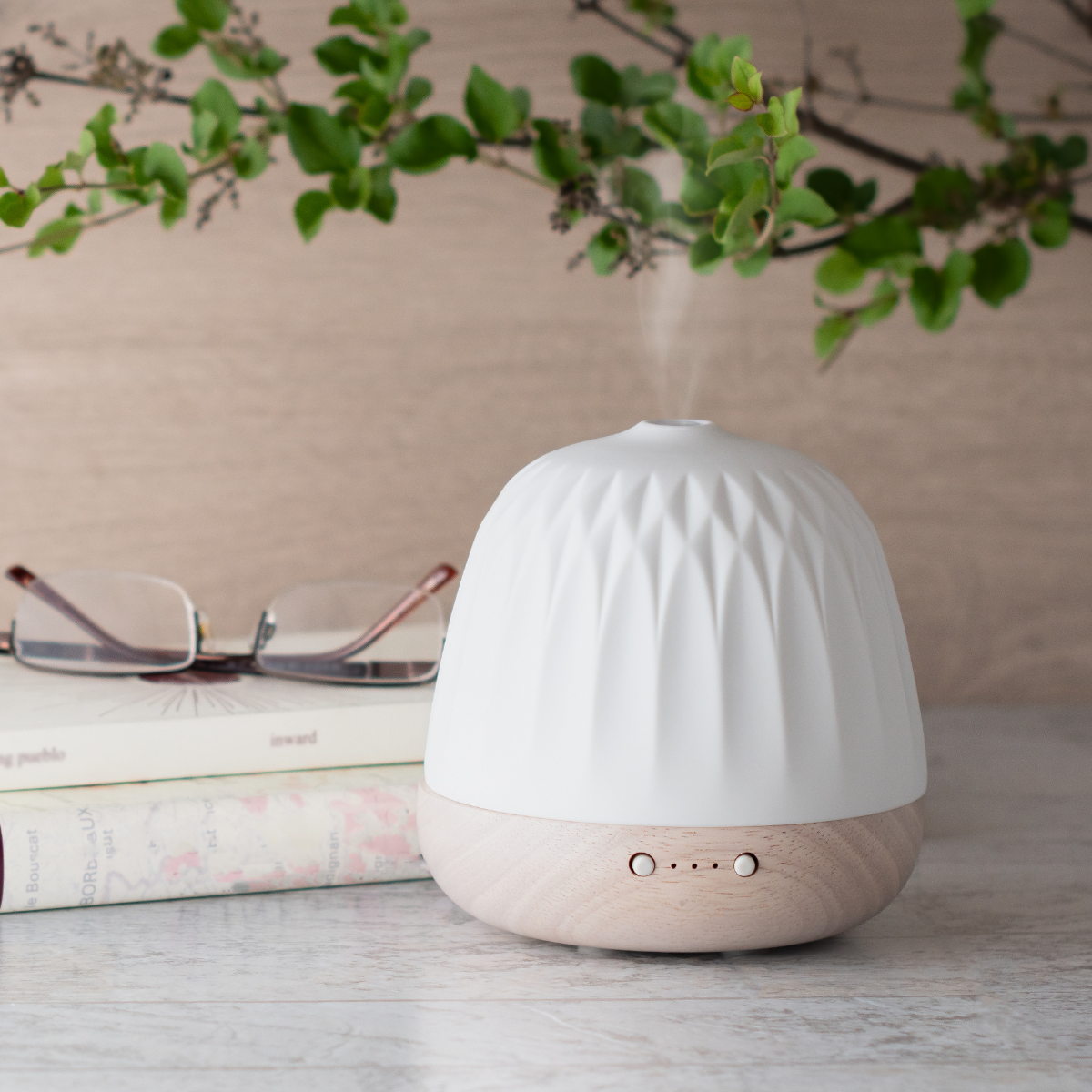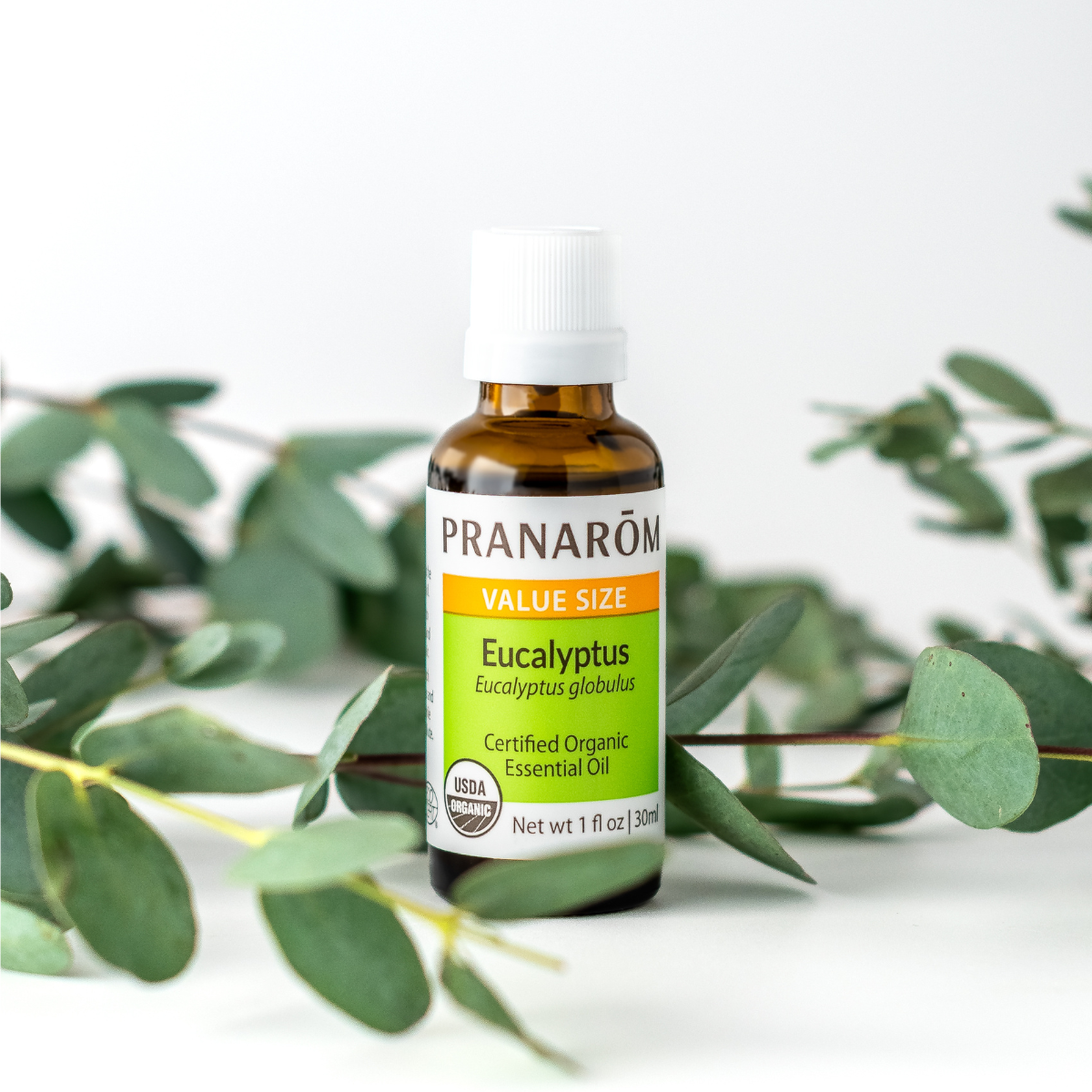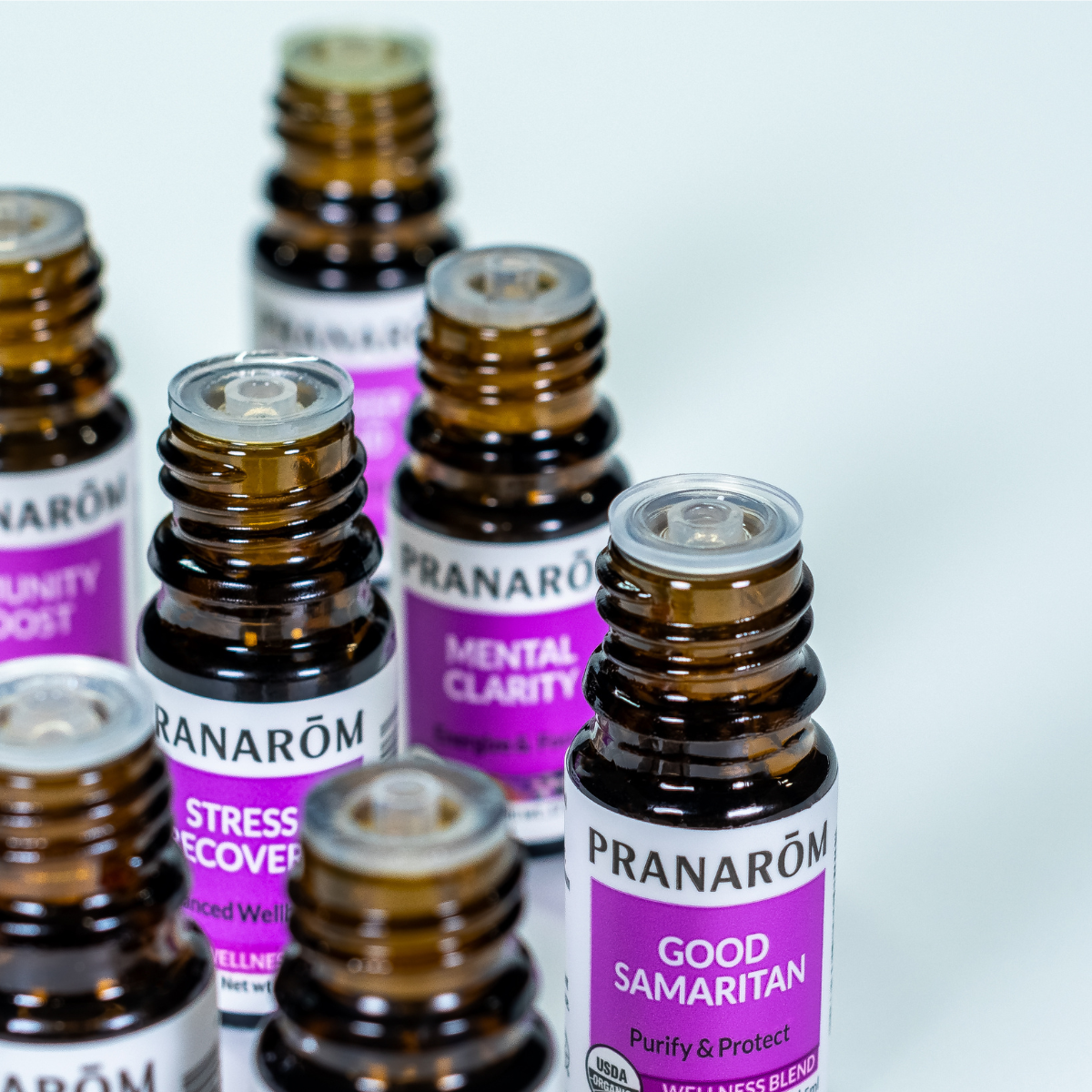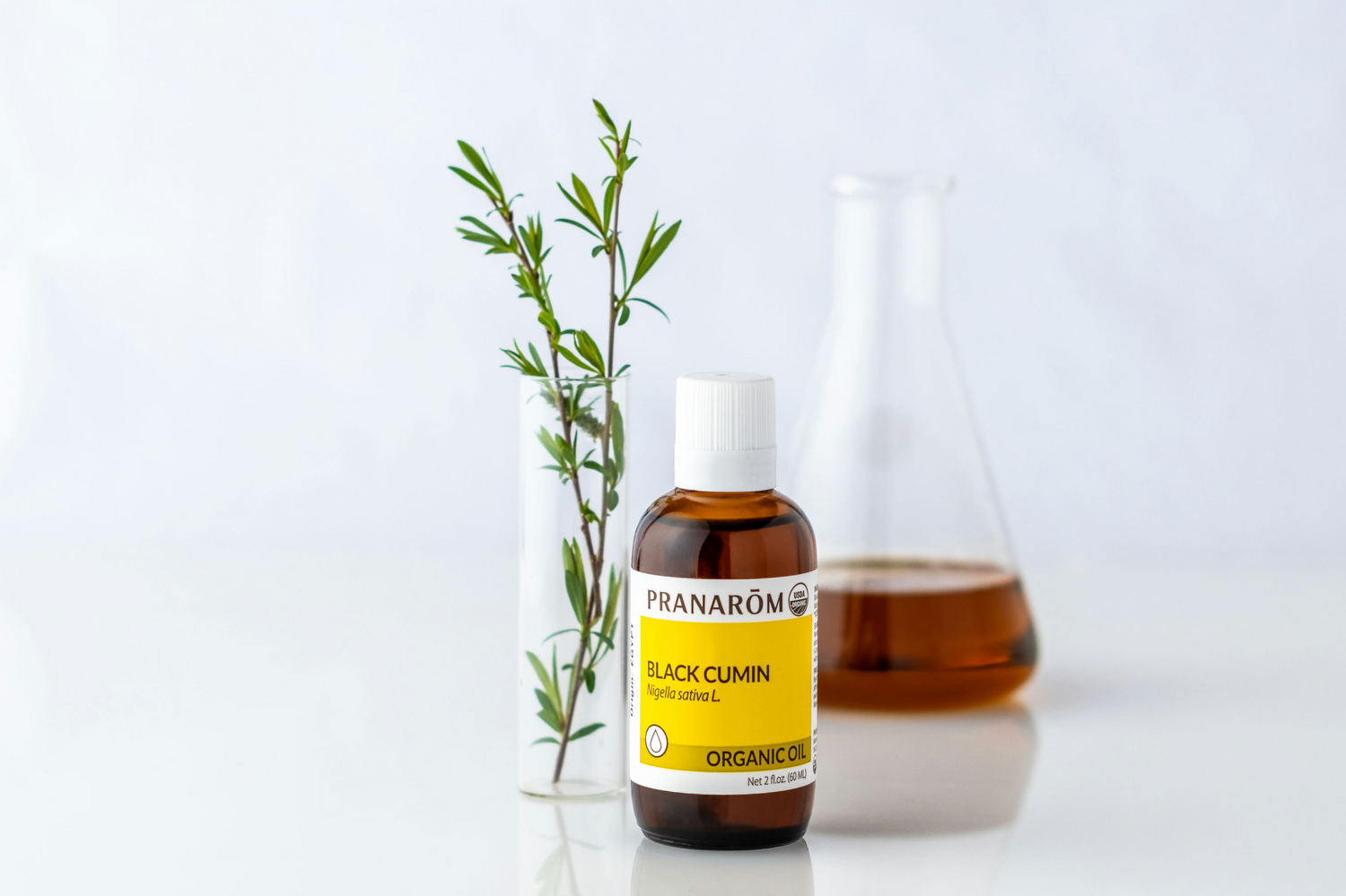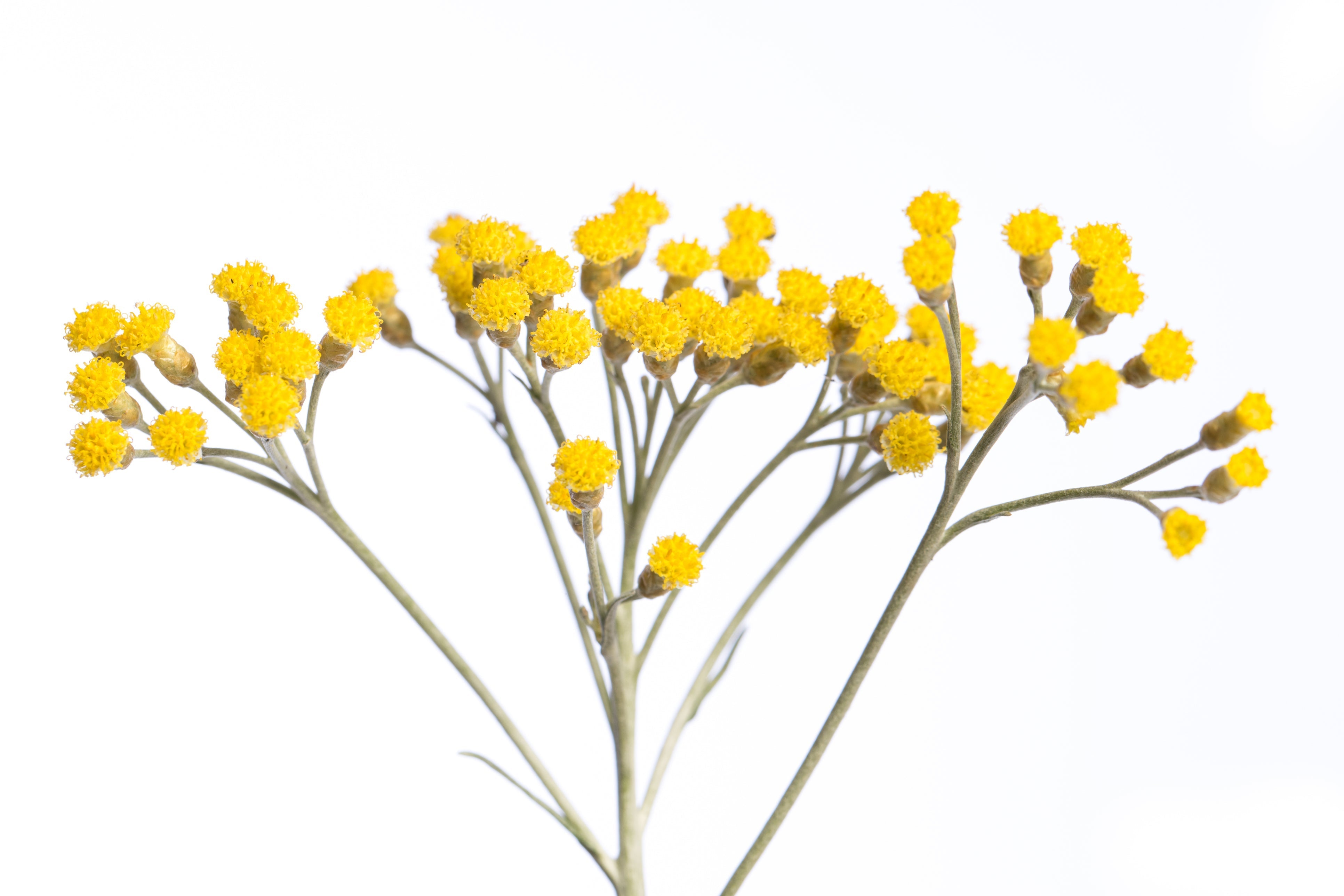Black Cumin, also known as Nigella or Black Seed Oil, is a must-have addition to your skincare tool kit. This aromatic pearl from the Mediterranean contains an impressive profile of compounds that soothe, purify and rejuvenate skin. Learn more about its impressive history and its fascinating properties!
Origins & history
Black Cumin, or Nigella sativa, is part of the Renunculaceae family. It is often confused with meadow cumin or cumin of the Apiacea family. The plant has small purplish blue flowers and very small black seeds. Mainly grown in Western Asia and the Middle East, its flowering occurs between June and July each year.
Black Cumin has a fairly long documented history, going back several thousand years. In Arabic, Black Cumin is called Habbatul baraka, which means "seeds of blessing". Muhammed reputedly said that "Black cumin oil cures all diseases except death." In Sanskrit, this oil is called Kalinji, or pharaoh oil. Other names include "Venus hair", "Pepperette", and "Four Spices". According to legend, Queen Nefertiti used Black Cumin for her complexion, which was described as exquisite.
Purity & quality
This oil is obtained by the cold pressing of nigella seeds. This mechanical method (without heat) preserves the nutrients and antioxidants in the oil, avoiding the damage and oxidation caused by processing with warm temperatures.
What is Black Cumin Virgin Plant Oil used for?
Black Cumin Virgin Plant Oil is made up of a fifth of monounsaturated fatty acids (omega 9) and nearly two-thirds of polyunsaturated fatty acids (omega 6). Nutrients and antioxidants include: nigelle essential oil, nigelline, nigellone, thimoquinone, essential vitamins and minerals. It naturally contains 0.2% essential oil, which contributes to its spice-like, earthy aromatics. All of its compounds make it particularly effective, yet gentle and very well tolerated.
The different uses of Black Cumin Virgin Plant Oil
For the skin
According to research, Black Cumin's levels of thymoquinone give it many potential benefits for skincare, especially where redness, irritation and congestion are present (1). In a study done in 2019, researchers tested a solution formulated with Nigella sativa seed extract against certain bacterial species known for causing acne. They observed that the solution was successful at inhibiting bacterial growth, even exceeding the effectiveness of a commercial synthetic product (2).
Synergy for pimples & zits:
Add to a 10 ml roll-on container:
- Black Cumin virgin plant oil: 9.5 ml
-
Rosemary ct Verbenone essential oil: 3 drops
Apply this mixture directly to pimples.
Purifying facial mask:
- Black Cumin virgin plant oil: 1 teaspoon
- Jojoba virgin plant oil: 1 teaspoon
- Raw organic honey: 1 teaspoon
Apply to your face and leave on for 30 minutes before rinsing with warm water.
For the hair
Synergy dry / damaged hair
- Black Cumin virgin plant oil: 1 tablespoon
- Argan virgin plant oil: 1 tablespoon
- Ylang Ylang essential oil: 3 drops
Apply all over your hair and scalp. Wrap in a towel and leave in for at least 1 hour before rinsing with mild shampoo. Repeat 1 to 2 times a week, depending on your needs.
Synergy for promoting healthy hair growth
- Black Cumin virgin plant oil: 3 to 5 drops
- Ylang-Ylang or Scotch Pine essential oil: 1 drop
- Shampoo
Blend with a dollop of shampoo (however much you usually use), then shampoo your scalp. Rinse.
What precautions should I take when using Black Cumin Virgin Plant Oil?
Black Cumin requires some precautions for use to ensure optimal benefits. Although it is generally risk-free, it is important to take into account the following:
- Avoid intense heat: Black Cumin oil is sensitive to high heat. It is recommended not to heat the oil directly, as this could alter its valuable properties.
- Perform a skin test: although skin reactions are rare, it is wise to perform a skin test before using Black Cumin oil on larger areas of skin or on sensitive areas such as the face. This ensures the compatibility of the oil with your skin.
- Avoid the eye and mouth area: during skin application, it is best to avoid applying Black Cumin oil around the eyes and mouth as it may be sensitizing to mucous membranes.
Black Cumin offers soothing, restorative, antioxidant and nourishing properties, which are ideal for skin care and can be safely integrated into your beauty rituals provided that the previous precautions are followed.
References:
(1) Hwang JR, Cartron AM, Khachemoune A. A review of Nigella sativa plant-based therapy in dermatology. Int J Dermatol. 2021 Dec;60(12):e493-e499. doi: 10.1111/ijd.15615. Epub 2021 Apr 26. PMID: 33899217.
(2) Nawarathne NW, Wijesekera K, Wijayaratne WMDGB, Napagoda M. Development of Novel Topical Cosmeceutical Formulations from Nigella sativa L. with Antimicrobial Activity against Acne-Causing Microorganisms. ScientificWorldJournal. 2019 Aug 14;2019:5985207. doi: 10.1155/2019/5985207. PMID: 31485198; PMCID: PMC6710770.

